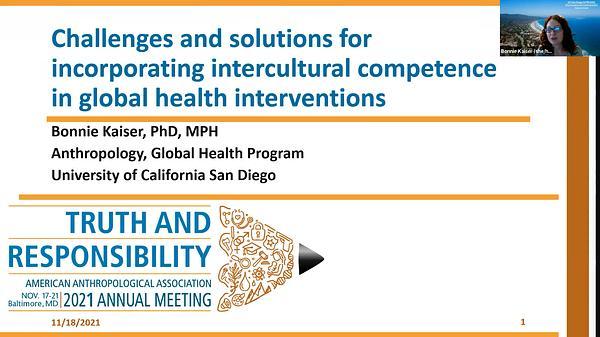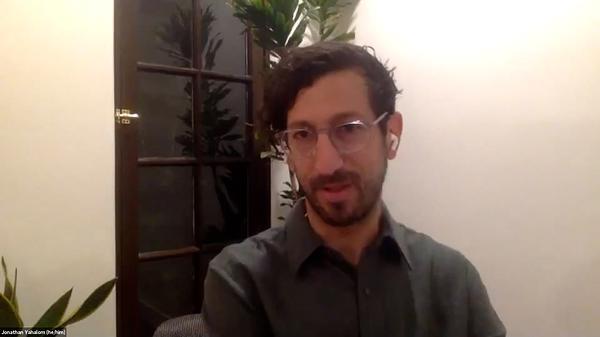Would you like to see your presentation here, made available to a global audience of researchers?
Add your own presentation or have us affordably record your next conference.
keywords:
applied anthropology
intercultural
advocacy
Competence across cultures has been central to anthropology since founders such as Franz Boas and Bronislaw Malinowski named cultural relativism and enjoined anthropologists to become immersed in the lifeways of the peoples they study. Yet, as Clifford and Marcus (1986) have more recently highlighted, the cultural “truths” that anthropology generates are always partial, in flux, and contested. Insofar as anthropology pivots on an understanding of intercultural competence, we are obliged to pause and consider how that competence is developed, in what truth claims it engages, and how potentially problematic epistemologies of culture are applied beyond academic inquiry. In the past 20 years, new deployments of intercultural theory and practice have proliferated under the banner of “intercultural competence” training in international business, global health, clinical medicine, journalism, and international law (e.g., Lustig et al. 2006). Although these spaces of study and practice engage ideas fundamental to anthropology, very few anthropologists publish or teach in this realm. As a result, much of the critical nuance on the truth claims of intercultural competence has been sidelined. This session convenes experts in global health, clinical psychology, cultural pedagogy, and expert testimony to discuss the epistemological challenges associated with teaching, implementing, and adjudicating intercultural competencies that are central to our discipline. Presentations will highlight the common challenges that anthropologists across subfields face during their practice and will reflect on possible avenues toward their resolution. With time for discussion and debate, this session welcomes participation from audience members on practical and philosophical questions about the position of the anthropologist, truth, power, and ambiguity in applied fields. Drawing examples from our respective work across applied fields, each paper in this session will explore at least one of the following: 1) The inherent tension between varying epistemological notions about culture experienced in applied anthropological practice; 2) Balancing best practices for professional activities with anthropological sensibilities about culture; 3) Structural factors shaping culturally attuned practice, and practical strategies for navigating them; and 4) Responsibility for the supervision and preparedness of trainees inside and outside anthropology who wish to apply it.

